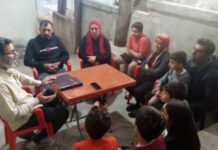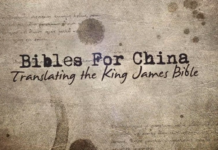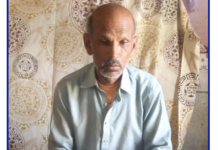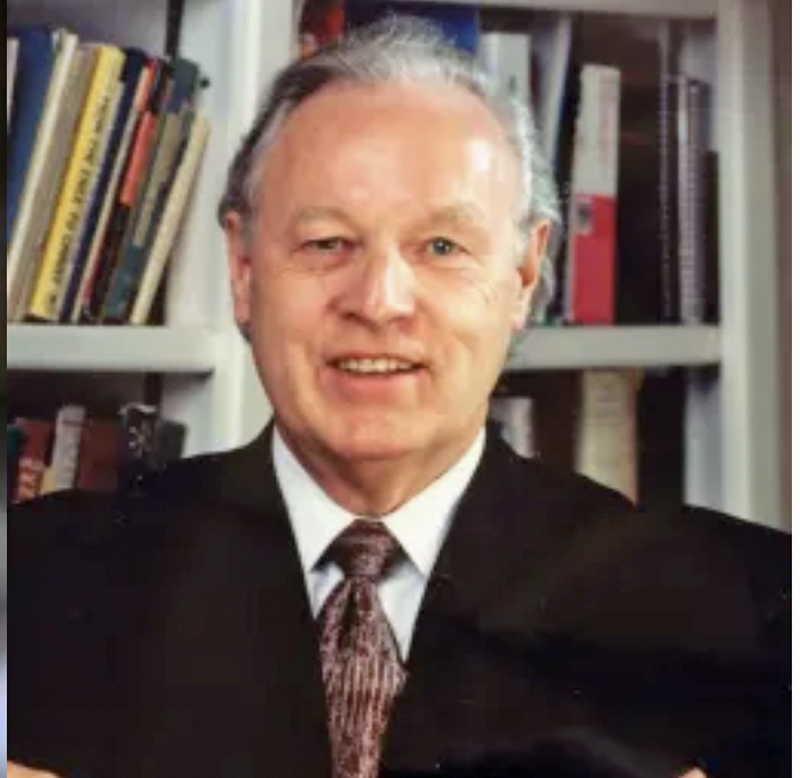High Wycombe, England (ANS) – People serving with Wycliffe Bible Translators are helping communities in marginalised language groups to receive clear health messages relating to the coronavirus (Covid-19) pandemic.
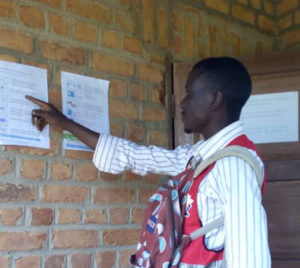
The charity says they are using their language and translation skills and knowledge to create posters, videos, social media posts and other materials to ensure that people fully understand what they need to do to stop the spread of the virus.
The materials are assisting efforts to minimise the effects of the coronavirus outbreak in some of the poorest regions of the world. Luke Garvey, Director of Global Communications for Wycliffe’s partner organisation SIL, says: ‘Based on an analysis of decades of research, our estimate is that close to 1 in 3 people worldwide do not have the basic health information they need to protect their communities from Covid-19 in the language they understand best. If you can’t understand these types of messages because they are not in your language, the risk of the spread of the virus and heightened death count increases significantly.’
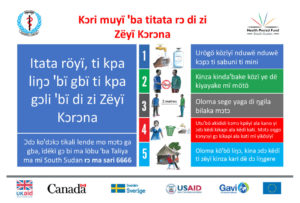
The efforts in this initiative are worldwide. So, in South Sudan, Tanya Spronk, SIL’s Literacy and Education Coordinator, worked with current and former Bible translation team members, plus experienced translators of local languages, to translate a government-approved Covid-19 prevention poster into 26 local languages that had no such materials. These have now been distributed widely via cell phones and other social media by various healthcare non-governmental organisations.
Wes Ringer, who serves with Wycliffe in South Sudan, says: ‘Because our team members know these marginalised language groups – and sometimes it’s their own heart language – they understand the problems in ways that others don’t. It has been tremendous to see the team respond in this way and make a really practical life-and-death difference in these communities.’
Meanwhile, in the Democratic Republic of Congo (DRC), two of the local translation team, Alfred and Jacques, created posters in the Bhele language to help the Bhele people understand the precautions they should be taking.
Tim Raymond, who serves with Wycliffe and works by WhatsApp with the team in DRC, says: ‘Our local translators have an awareness and knowledge of their communities that comes into its own in a crisis like this. To see how Alfred and Jacques have taken the initiative for their people has been inspiring.’
In the Philippines, local partnerships have enabled vital Covid-19 prevention materials to be translated into over 40 local languages. These are being shared through social media, to reach many communities across the islands.
And in Togo, the Wycliffe team has taken a public health information video issued by the government in French and dubbed them with local languages. Many people’s understanding of French is limited, so the team created videos in 16 languages. These have been shared through social media and on YouTube, while ten of the videos have been broadcast on Togo’s national television, Télévision Togolaise. As a result, this translation work now serves around 7 million people inside Togo and many more beyond the Togo borders. Abou Sama, Director of Wycliffe Togo, says: ‘This continues to have a tremendous impact in the country, and even outside the country among the diaspora in Western countries like in Germany among the people speaking those languages.’
James Poole, Executive Director of Wycliffe, says: ‘The coronavirus pandemic is providing many opportunities for Wycliffe team members to provide highly practical and understandable health information to people in vulnerable situations. It is wonderful to see how these teams have been able to harness their translation knowledge and use current distribution methods to help people to adopt suitable precautions against the virus. It’s a real example of how our engagement with marginalised communities can bring wide-ranging benefits to them even as we continue to focus on our primary calling of engaging people with the Bible for their eternal gain.’

